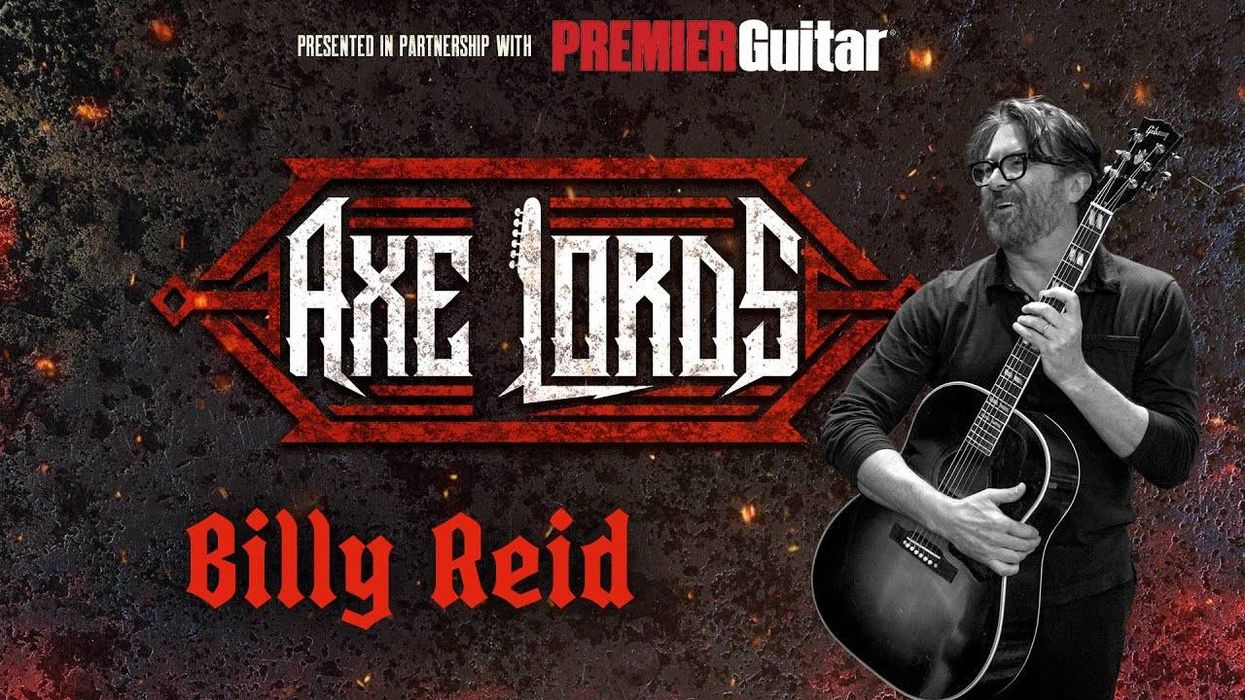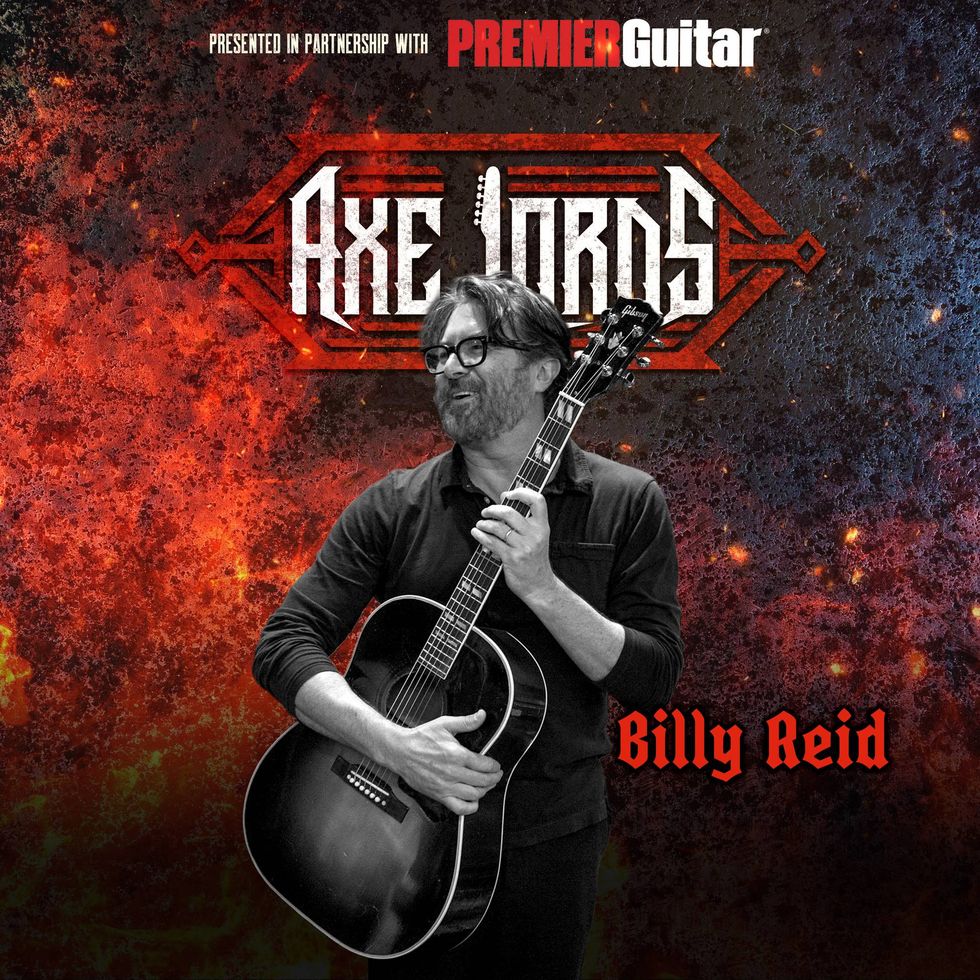Bill Orcutt gets enough questions about his unique 4-string approach to the guitar that he once titled a compilation “Why Four Strings?” As it turns out, there were no intentions or inspirations when he chanced upon the setup in the 1980s. “My guitar was kind of neglected at the time, so it somehow ended up having four strings on it,” Orcutt explains. “I started noodling and writing around that random configuration, and a friend of mine who played drums wanted to start a band.”
Bill Orcutt - "The World Without Me" [official video]
From Bill Orcutt's self-titled solo electric album, from 2017.
That friend was Tim Koffley, who joined Orcutt in the post-rock duo Watt. “We played together for a couple of years, and that was all it took to take root,” says Orcutt. He followed his brief time with Watt with a successful foray into noise-rock with his notorious duo Harry Pussy, and, since their disbandment in the late ’90s, has gradually entered—and today, finds himself fully immersed in—the realm of experimental music.
On his latest release, Four Guitars Live, Orcutt is accompanied by a trio of virtuosic shredders from the world of experimental music: Wendy Eisenberg, Shane Parish, and Ava Mendoza. (Each of the guitarists plays their instrument strung with four strings.) You might have seen this quartet on NPR’s Tiny Desk concert series last April, cramming their Telecasters and Jazzmasters into an office packed with knick-knacks. It’s a thrill to hear their spidery riffs interlacing and peeling off into solos, filling the room with rowdy whoops and claps. Four Guitars Live captures the same group seven months later, performing at Utrecht, Netherland’s festival Le Guess Who?
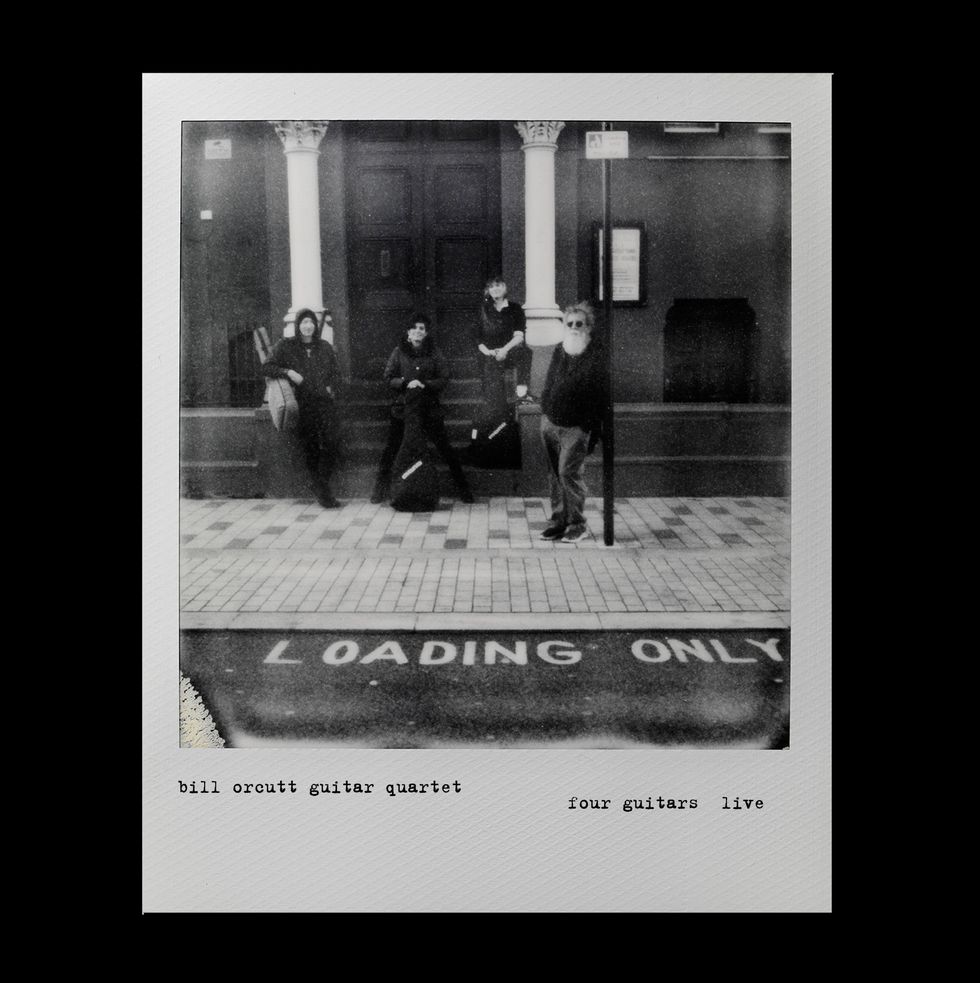
On Four Guitars Live, each member of the quartet performs on a guitar strung with just four strings.
The pulsing, Steve Reich-like minimalist compositions performed on Four Guitars Live first appeared on Orcutt’s 2022 solo album, Music for Four Guitars. The seed for that project was planted in 2015, when Orcutt was asked by a friend in Columbus, Ohio, to write some music for his guitar quartet. “I couldn’t come up with anything and wasn’t sure how to proceed, but the idea stuck with me,” Orcutt says. “After seven years of poking at it, I cracked the code. Then it took me a few months and it was done.”
Growing up in Miami without older siblings, Orcutt says he “didn’t like music” until his parents bought him a Yamaha acoustic guitar and a turntable. Reading record reviews led him to The Last Waltz, where Muddy Waters’ playing made an outsized impression. “[My parents] also got me guitar lessons, but I had no interest, so it was only a chore,” Orcutt says. “I didn’t enjoy it and there was nothing interesting about the material the teacher was presenting to me, so that ended pretty quickly.”
As he familiarized himself with the Florida music scene of the early ’90s, Orcutt bought his first electric guitar—a Japan-made Stratocaster copy—and met his now ex-wife, Adris Hoyos. Forming the duo Harry Pussy, they continued Orcutt’s 4-string journey, releasing their music on small independent labels like Siltbreeze and Chocolate Monk. “The music I made with Watt was very structured,” says Orcutt. “Even when I took a solo, they were kind of fixed. After a few years I decided I wanted to have more room to improvise. It wasn’t just me, either. Adris had never even touched a drum kit before we recorded our first single. We had this momentum that was like going down a hill.”
Following the duo’s separation, Orcutt spent a decade on filmmaking, software engineering, and electronic music, surprising listeners with his 2009 acoustic comeback album, A New Way to Pay Old Debts. With that and subsequent releases, Orcutt’s rambling improvisations on the Kay guitar he’s played since college have ushered in an awe-inspiring second act. “At that time, I was living in an apartment with kids,” says Orcutt. “I didn’t have access to a practice space, so the acoustic guitar just made sense. After playing it for a while, this thing I had for many years took on some kind of significance, and I mainly just really enjoyed it.”
The Bill Orcutt Guitar Quartet's Gear
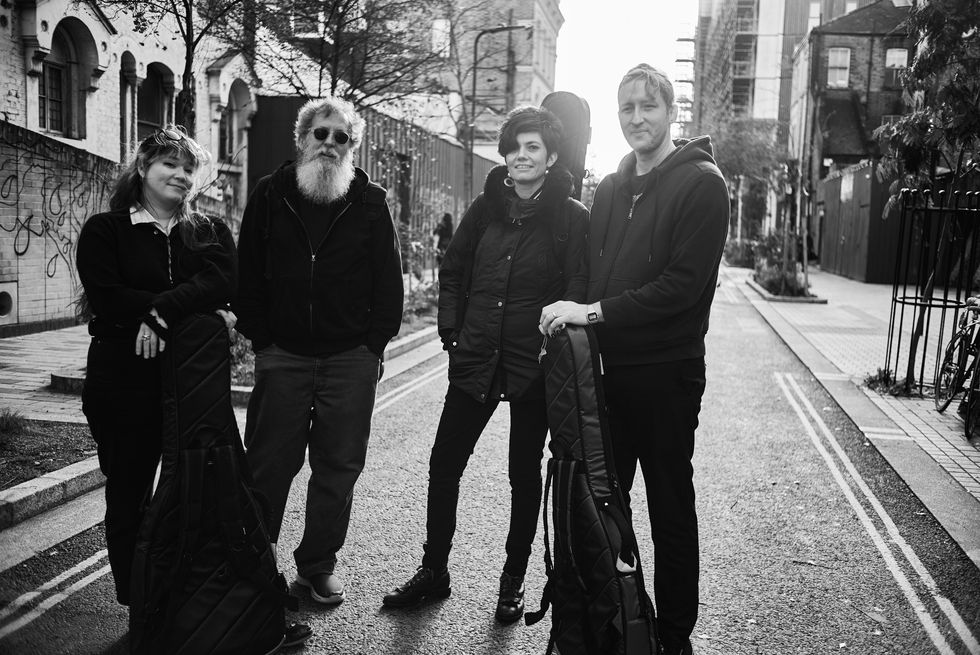
The compositions performed on Four Guitars Live were originally released on the quartet’s studio full-length, Music for Four Guitars.
Guitars
- Fender Telecaster – Bill Orcutt
- 1994 MIJ Fender Jazzmaster – Wendy Eisenberg
- Squier Telecaster – Shane Parish
- Novo Serus made by Dennis Fano – Ava Mendoza
Amps
- Fender Hot Rod Deluxe – Orcutt
- Fender Deluxe – Eisenberg
- Fender Deluxe Reverb – Parish
- Fender Blues Deluxe – Mendoza
Effects
- Electronic Audio Experiments Longsword V4.5 – Eisenberg
- Boss BD-2 Blues Driver – Parish
- 1990s Pro Co RAT, Joyo JF-13 AC Tone, Xotic USA Super Clean Buffer – Mendoza
Strings & Picks
- Ernie Ball Regular Slinky – Orcutt
- D’Addario Pure Chromes .011–.050 – Eisenberg
- D’Addario (.010s) – Parish
- D’Addario or Ernie Ball .010–.048 – Mendoza
- Dunlop Standard 1 mm – Orcutt
- D’Andrea Pro Plec 358 – Eisenberg
- Dunlop Tortex .88 mm – Parish
- D’Addario Duralin 1.2 mm – Mendoza
When Music for Four Guitars was completed, Orcutt realized it was the first album he had written without improvisation since his former band’s 1996 swan song, Ride a Dove. At that point, they were a trio, with the addition of second guitarist Mark Feehan. “After we became a trio, the question was how do we make a less obvious kind of structure?” says Orcutt. “It was difficult to organize something that seemed completely chaotic. We ended up right back where Adris and I started, with fixed solos and no improvisation.”
Performing Music for Four Guitars live was made possible by Athens, Georgia-based guitarist Shane Parish, who was commissioned by Orcutt as a transcriber. “At first, it was almost like a novelty idea to help sell the album—buy the digital download on Bandcamp and you get the PDF score,” Orcutt laughs. “So it wasn’t initially the idea that it would be used with a real quartet. I couldn’t quite imagine that, at that time!”
After completing his first European tour with the quartet, Orcutt discovered the stark differences between performing composed scores as a group and improvising. “There are spaces for improvising in our set, but it’s very different from going out and playing free,” Orcutt says. “In some ways it’s a lot less frantic. It’s more about focusing, feeling the music, and the other players.”
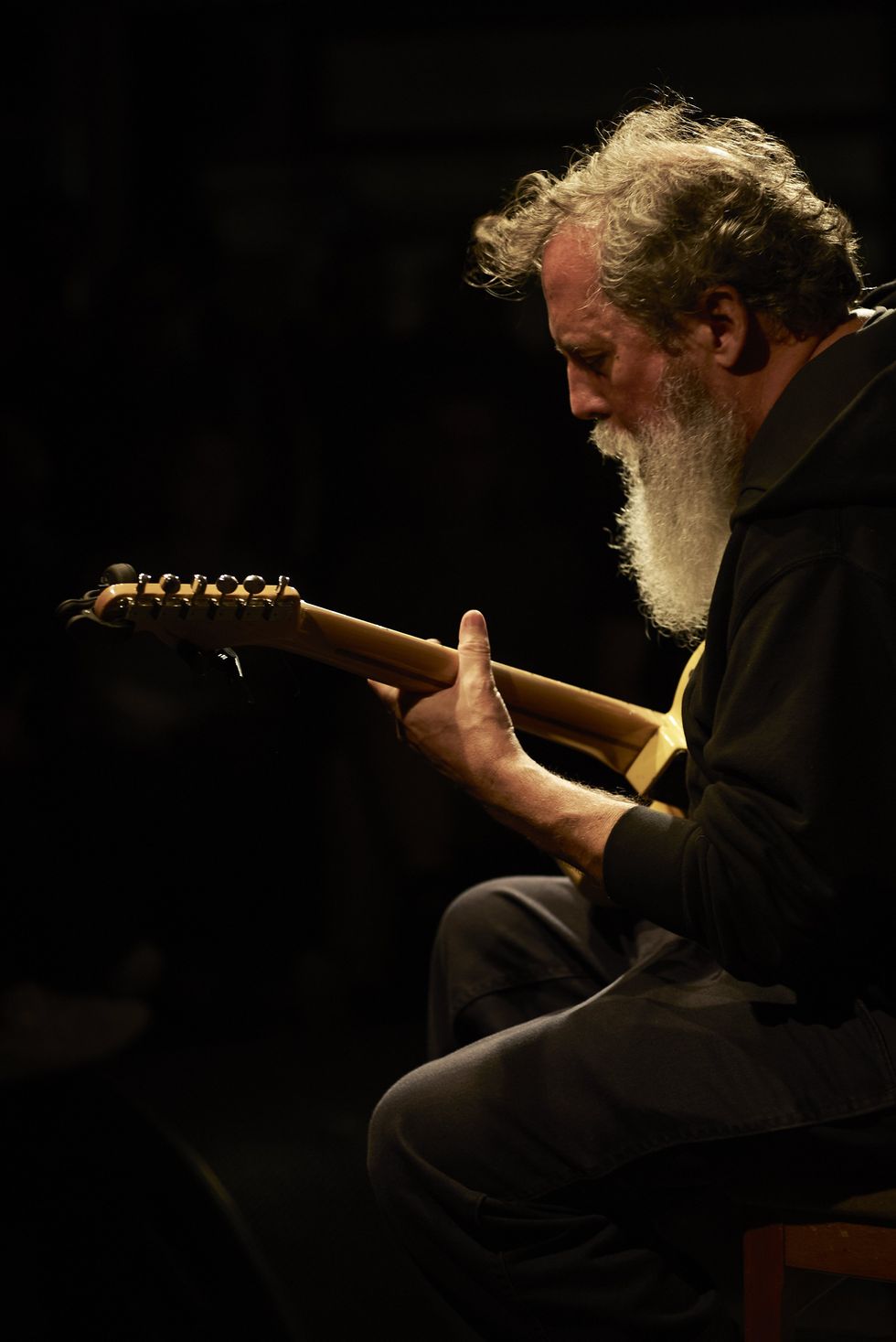
Orcutt chanced upon his 4-string setup in the ’80s, when his neglected guitar “randomly” ended up with four strings.
Reflecting on his unlikely transition from the noise-rock underground to NPR, Orcutt still catches himself in moments of astonishment. For an artist whose previous band channeled Captain Beefheart with the brute fury of Black Flag and the speed of Canadian teen punks NEOs, it’s hard to imagine making this kind of leap. But the beauty of Orcutt’s guitar playing has led him into mainstream spaces.“Harry Pussy did get played on MTV’s 120 Minutes when Thurston Moore hosted,” says Orcutt. “And when Nirvana played Miami, Kurt Cobain told thousands of people in the audience to go see us. But for the most part, we were so far out that even the indie-rock writers wouldn’t touch us.” As for his latest ascension, he comments, “I don’t think we ever believed that such a thing was possible.”
Bill Orcutt Guitar Quartet: Tiny Desk Concert
Bill Orcutt is joined by Wendy Eisenberg, Shane Parish, and Ava Mendoza on NPR’s Tiny Desk, performing compositions from his album, Music for Four Guitars.


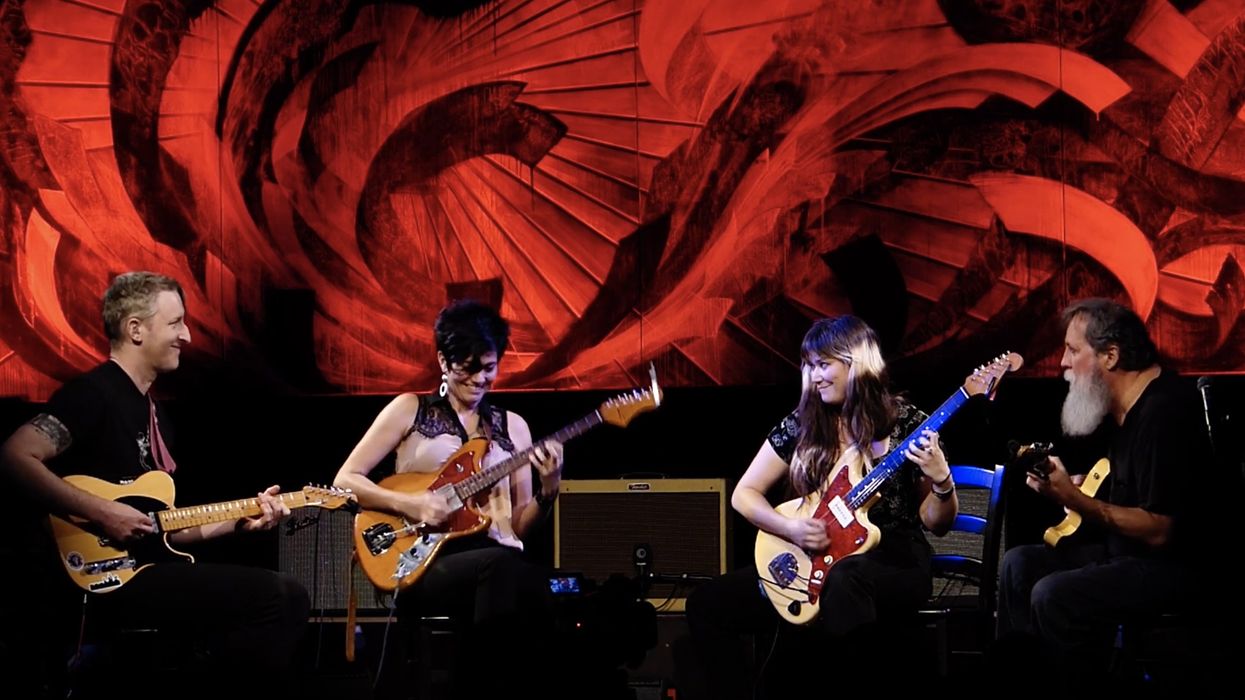





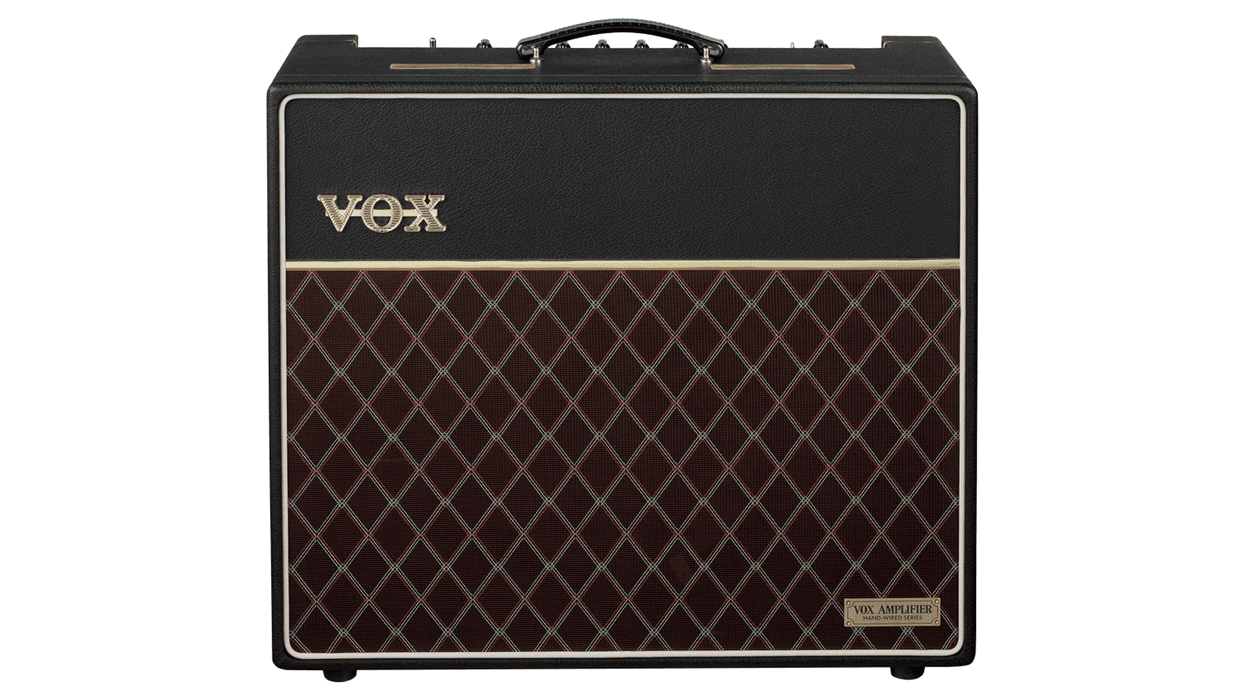

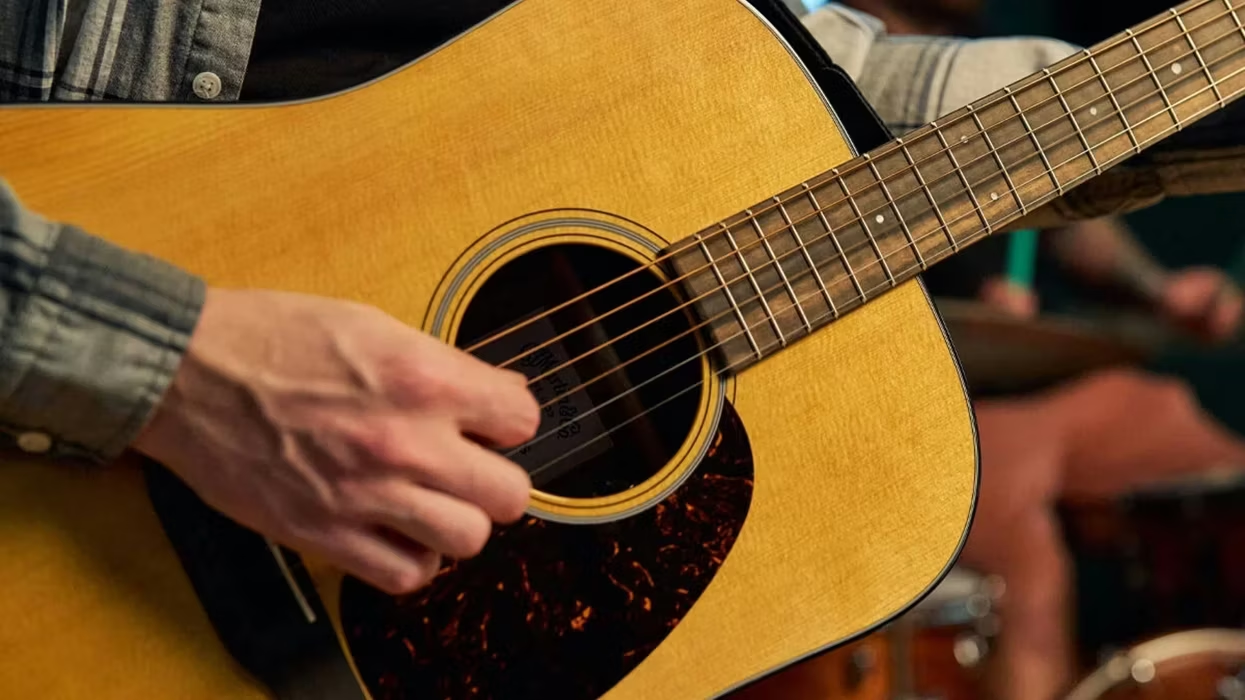
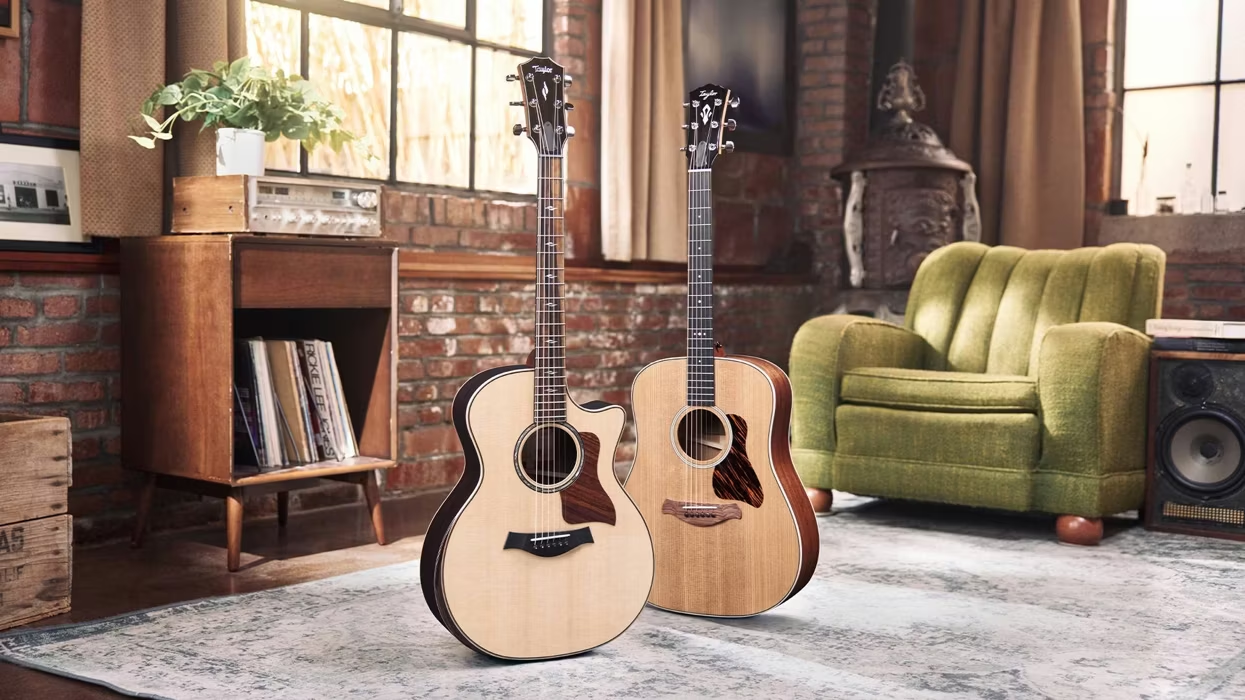
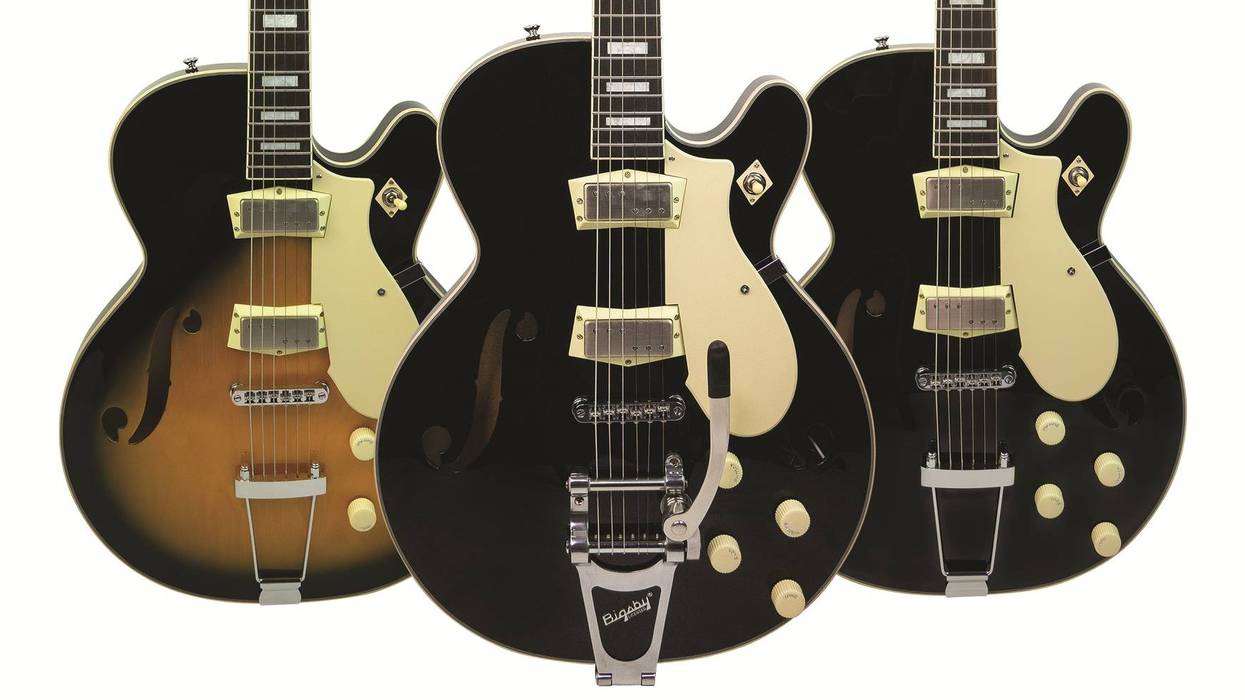
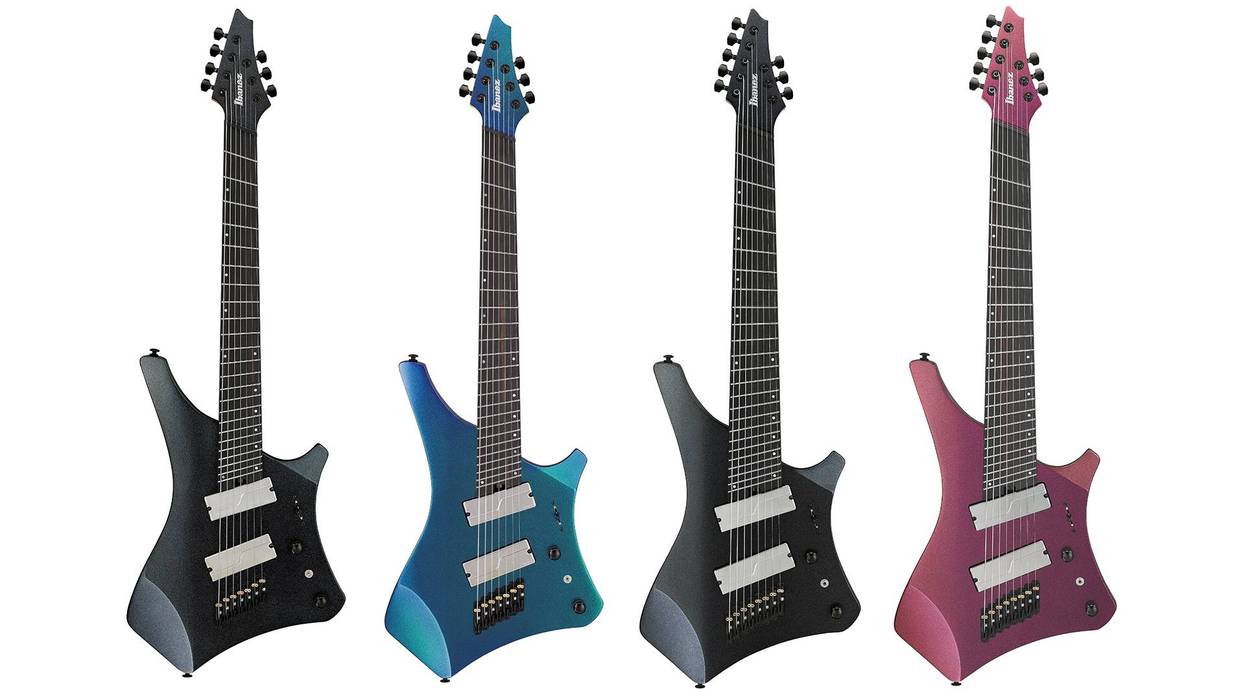


![Rig Rundown: Russian Circles’ Mike Sullivan [2025]](https://www.premierguitar.com/media-library/youtube.jpg?id=62303631&width=1245&height=700&quality=70&coordinates=0%2C0%2C0%2C0)







